Health Care in Danger exhibition at SHAPE, NATO
… ambulance at SHAPE (c) SHAPE Photographic "Health Care in Danger - an issue for our times" hosted at NATO …
… ambulance at SHAPE (c) SHAPE Photographic "Health Care in Danger - an issue for our times" hosted at NATO …
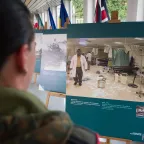
… What do ethics have to do with protecting health care? How can we make sure doctors and nurses – … too? This edition of the Health Care in Danger newsletter allows you to reflect on the …
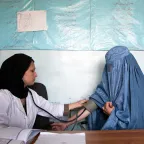
… How can we protect hospitals, health care workers and patients from attacks? The June Newsletter of the Health Care in Danger project brings you interesting examples …
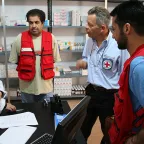
… others, five babies and three mothers. A health-care centre occupied by security forces for … that must be addressed. The Health Care in Danger (HCiD) project is a Red Cross and Red …
… and an military tank meet at an interchange. Health-care providers and military personnel often … respect the secure and impartial delivery of health care. ICRC / T. Gassmann / …
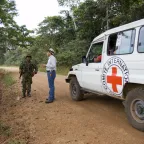
… The law says hospitals, ambulances and health-care workers must be protected and should never … Worldwide, the lack of safe access to health care is causing untold suffering to …
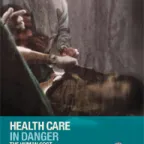
… in August 2022, assessed the ICRC's Health Care in Danger Strategy. The evaluation identified good …
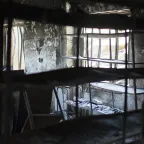
… game module that would promote respect for health-care personnel and facilities. The winner of … Read: Health Care in Danger Newsletter, January-June 2015 …

… "Health Care in Danger: Meeting the Challenges" is a collection … how violence can disrupt the delivery of health care. In some cases, entire communities …
… and many others striving to protect health-care services share their stories of courage … hope in the new publication Health Care in Danger – Meeting the Challenges . Four years on …
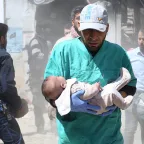
Try one of the following resources:
Created in 1863, the ICRC library, alongside the ICRC archives, provides an indispensable documentary reference on the organization itself and international humanitarian law.
International humanitarian law is based on a number of treaties, in particular the Geneva Conventions of 1949 and their Additional Protocols, and a series of other instruments.
Customary international humanitarian law consists of rules that come from "a general practice accepted as law" and that exist independent of treaty law.